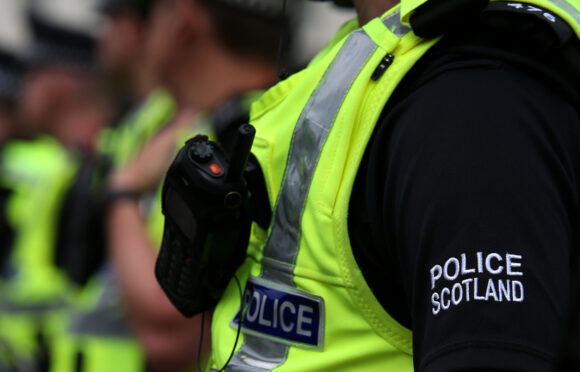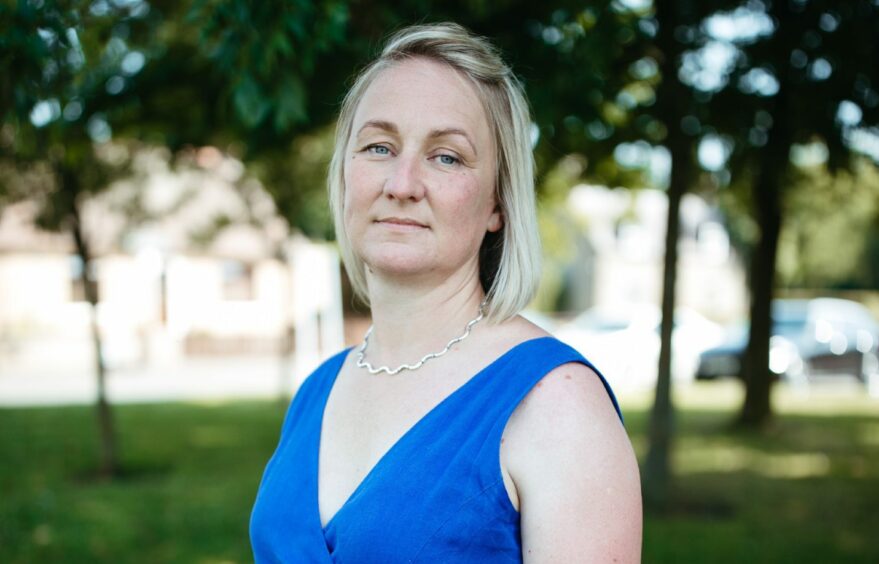
The chair of a Scots police board has urged the national force to stop using legal agreements to silence departing staff.
Stephen Curran, chair of Midlothian Police and Fire and Rescue Board, spoke after obtaining figures revealing Police Scotland has paid out more than £700,000 in settlements tied to non-disclosure agreements (NDAs) over the last five years.
The figures emerged after Rhona Malone, a firearms officer who won a landmark tribunal exposing victimisation within the force, accused the force of tying payoffs to NDAs to silence female whistleblowers.
Curran said: “If there is behaviour going on within Police Scotland that is in any way similar to what we heard in the Malone case, then the public absolutely have a right to know and need to be reassured that something is being done about it. Behaviour like that cannot be tolerated. It is toxic, unacceptable and should never be covered up by the use of any gagging order.
“If Police Scotland robustly investigate such cases as they claim to, then they should have no problem with scrutiny and no need for NDAs.”
Malone, who refused to sign a NDA before leaving the force, called for a ban on the secrecy agreements, adding: “They should have no place in a public body like Police Scotland, which continues to use them as a way of silencing women.
“Without proper scrutiny, the bad behaviour within the force will continue, keeping talented women down and silenced without ever having to hold those responsible to account.
“Nobody wilfully signs an NDA, unless there are exceptional circumstances, because they are only used to suppress the truth. But I do know that many officers, particularly women, who have been forced to sign simply because they didn’t have finances to take their case to the next step.”
In its response to Curran’s Freedom of Information request, Police Scotland said it: “Would not countenance the improper use of non-disclosure agreements to prevent employees from revealing wrongdoing such as discriminatory behaviour, or cases involving bullying, or harassment. Whenever such cases are identified, Police Scotland takes action to investigate thoroughly and apply sanctions and/or learning outcomes as necessary to avoid any repetition of such behaviour.”
Curran said: “No matter what Police Scotland’s assurances over their use of NDAs, there should be no place for them in any taxpayer-funded body, unless there are truly exceptional personal circumstances and even then, scrutiny is needed.
“This is a huge sum of public money, and after closely watching the truly shocking evidence which emerged as a result of Rhona Malone’s persistence and bravery despite all she was subjected to, Police Scotland’s use of NDA’s cannot continue.”
The 23 settlements involve whistleblowing, sexual harassment, pregnancy issues, discrimination over sexual orientation, disability and age discrimination as well as part-time working. Malone, from Midlothian, was a firearms officer for seven years but quit after an inspector ordered her not to be on duty with another woman.
Her victimisation claims succeeded but a sex discrimination claim was later dismissed. Malone received an apology from Police Scotland, but has not seen a penny despite winning her case last October.
She said: “I would still never advise anyone to sign an NDA because doing so prevents the truth coming out and denies you the opportunity to heal. They should be banned.”
Police Scotland said: “Compensation is dealt with on a case-by-case basis and with a view to securing best value for the public purse. Confidentiality agreements are recommended by the independent the Advisory, Conciliation and Arbitration Service. In line with ACAS’s guidance, we never use confidentiality agreements to prevent whistleblowing.”
Scottish Conservative shadow community safety minister Russell Findlay said: “I can’t think of any circumstances where it would be appropriate for the police or any other publicly funded organisation to legally ban someone from having the right to speak candidly about wrongdoing they have suffered.
“I have asked questions of Police Scotland and the Scottish Police Authority about the use of gagging orders but I’m still unclear about the extent, nature and justification of their use.
“It has been claimed they are never used to prevent whistleblowing, but that is not what is suggested as far as I’m aware. The concern is that whistleblowers, and other victims of wrongdoing, are subjected to NDAs after they have raised concerns.
“That way, the public don’t get to hear what went wrong and organisations may be less likely to learn lessons.
“To be gagged from speaking publicly about what happened is unhealthy, contrary to the public interest and speaks to a secrecy culture that seems to permeate some sections of Scottish public life.”

Enjoy the convenience of having The Sunday Post delivered as a digital ePaper straight to your smartphone, tablet or computer.
Subscribe for only £5.49 a month and enjoy all the benefits of the printed paper as a digital replica.
Subscribe © Andrew Cawley
© Andrew Cawley